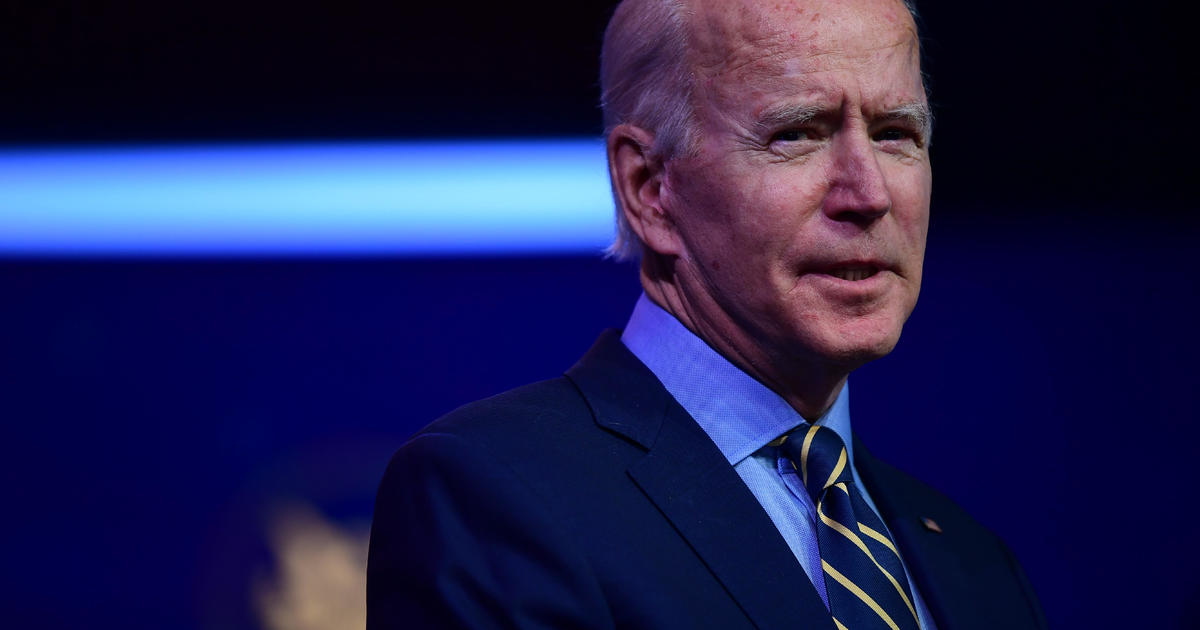President-elect Joe Biden will issue a memo on his first day in office to “halt or delay” the Trump administration’s last-minute actions, Biden’s transition team announced on Thursday.
The Biden-Harris White House plans to issue a regulatory freeze memorandum on the afternoon of January 20 that will interrupt or delay the so-called “midnight regulations” put in place by the Trump administration that will not take effect until the day of inauguration, he said. the incoming press secretary of the white house Jen Psaki during the last transition team briefing before the new year. These last-minute actions are typical of goofy presidents, she said.
What are the midnight regulations?
According to the Regulatory Studies Center at George Washington University, “the final months of a presidential administration that is leaving the government usually generate a significant amount of regulatory activity”.
“The midnight period is usually defined as the period between the presidential election in November and the inauguration day on January 20 of the following year,” writes the center, and was “documented already in the transition from the Carter to Reagan administration, and followed all presidential transitions since then, regardless of the political party. “
The Biden government will quickly address changes made during this period, as other governments have done, said Psaki. The freeze will apply to regulations as well as guidance documents, which the agencies issue to explain or clarify rules and policies.
Psaki highlighted as an example a rule proposed by the Trump administration’s Department of Labor regarding the authority of companies over classifying workers as independent contractors, rather than employees, according to the Fair Labor Standards Act. Independent contractors give up most of the benefits that employees receive, such as overtime or minimum wage protection, paid sick leave, family leave and the right to form or join a union.
“The Department of Labor is expected to publish a final rule before January 20 that would make it easier for companies to call their self-employed workers to avoid minimum wage and overtime protection. If it goes into effect, the rule will make it easier to incorrectly classify employees as independent contractors, costing workers nearly $ 3.7 billion annually, “she said. Biden’s memo” would potentially freeze this rule and would not allow its implementation, ” said Psaki.
Asked what the Biden government will do about possible future actions and executive orders that the freezing memorandum cannot stop – such as reports that the Trump administration will designate Cuba as a sponsor of terrorism – Psaki acknowledged that there are “additional actions that the Trump administration and your team members can take in the coming weeks that are harmful and destructive to our policies, be they national security policies or internal policies. “
She and Yohannes Abraham, executive director of the Biden-Harris transition, said delays and obstructions in the transition process made it difficult to assess certain issues. She said that Biden’s team expected “greater cooperation” from key agencies “,including the Department of Defense. ”
The transition coincided with significant delays in the distribution of the vaccine. According to the COVID Data Tracker of the Center for Disease Control and Prevention, more than 2 million people have been vaccinated in the United States – far from the 20 million employees of the Trump administration promised by the end of the year.
“The pace is not what it should be,” said Psaki, adding that the next government will push for more funding for vaccine distribution in the new year. “The bill that is being discussed will not be enough.”
Biden will also terminate some of Trump’s “damaging” executive orders, Psaki said, and some of the new government’s priorities will include “restoring protection for Dreamers, returning to the Paris Climate Agreement, reversing President Trump’s environmental setbacks” and ” protect and strengthen the Affordable Care Act. “
